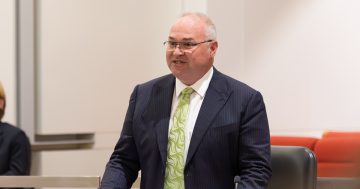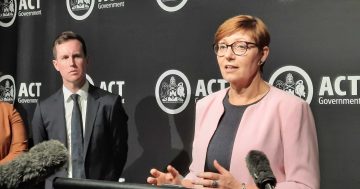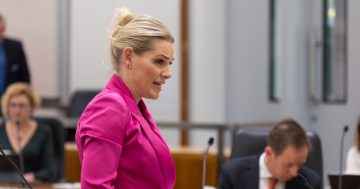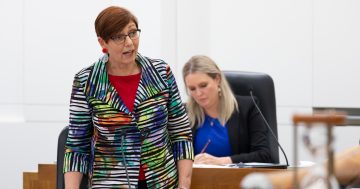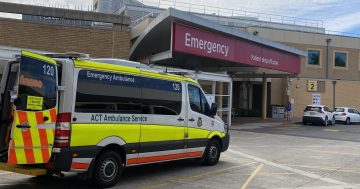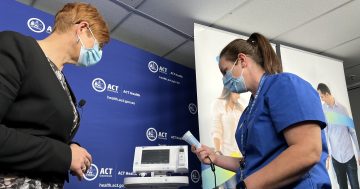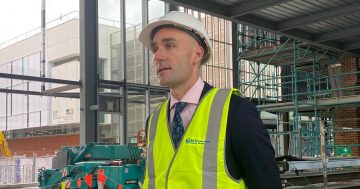
Health Minister Rachel Stephen-Smith says there was no need under the caretaker conventions to brief the Opposition or Greens. Photo: Ian Bushnell.
The ACT Government may not have been obliged under the caretaker conventions to advise the opposition of a potential problem with the health budget before the election, but staying quiet about it was not in the spirit of the conventions either, according to an expert on parliamentary ethics and culture in Australia.
Associate Professor Zim Nwokora, a senior lecturer in Politics and Policy from Deakin University, said unless there was evidence that the government was reasonably sure about the blowout in health costs due to surging demand at hospitals and health facilities, it would not be fair to say it had broken the caretaker convention.
But by staying mute on the issue rather than giving at least some indication of the uncertainty, its actions fell short of the ideal interpretation of the convention, he said.
Professor Nwokora said the caretaker conventions were clearer about what the government can’t do, such as make spending commitments during the election period, than what it ought to do.
Professor Nwokora said whether the government should have told the opposition and the public about a likely budget blowout turned on what exactly the government knew.
“How certain [compared to other government data] was the information about the likely blowout? That’s a potentially fuzzy judgment, and only those in the know – the minister, their advisers and the public servants working on that issue – would be able to provide a proper assessment of this,” he said.
“If the data were reliable at that point, then the government, in my view, would be obliged to release it.
“Indeed, I’d say that the obligation to do so may even be greater in the run-up to an election given what’s at stake. But, of course, the incentive not to do so will be stronger in the run-up to an election as well. So there’s a clear tension here from an accountability standpoint.”
Opposition Leader Leanne Castley has accused the government of hiding the increasing activity and budget ramifications from it and the voters, quizzing Health Minister Rachel Stephen-Smith and health officials in Annual Reports hearings on Thursday (21 February).
Ms Stephen-Smith confirmed that her office was given a ‘heads up’ about what was happening in early October two weeks out from the election, as reported by Region last week.
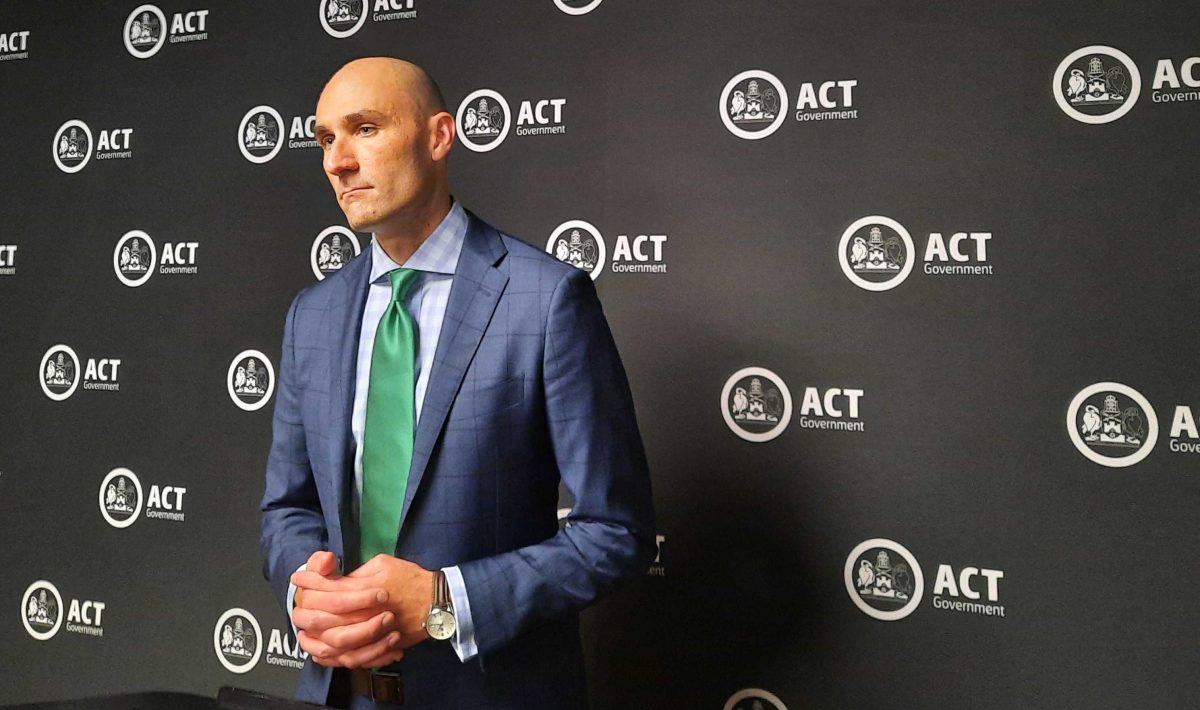
Canberra Health Services CEO Dave Peffer warned that CHS was “running ahead of budget”. Photo: Ian Bushnell.
The warning came in the form of an email from Canberra Health Services CEO Dave Peffer on 4 October.
Ms Stephen-Smith said she had discussed it with her chief of staff, but it was not passed on to the Chief Minister and then Treasurer, Andrew Barr.
“We went, well, it’s the 4th of October, there’s not a lot we can do about that,” she told the committee.
“It’ll be a problem we have to deal with after the election if we are re-elected, but we’re in the middle of a campaign.”
Ms Castley referred to a section of the conventions on requests by ministers of directorates and agencies, which says they should generally not be asked to provide policy advice but also says there might be circumstances where urgent issues arise that clearly require advice to be given to ministers in order to allow responsible agency administration or to enable the government to protect the public interest.
“To avoid controversy and claimed breaches of the apolitical and impartial nature of the ACTPS, it may be appropriate to also brief the opposition and crossbench,” it says.
Ms Castley believed the “urgent nature” of the CHS advice demanded that the Opposition and the Greens be briefed.
Ms Rachel Stephen-Smith avoided that choice of words and told the committee that the information from CHS had not been sought – which meant it did not need to be shared – and was not sufficient to act on, saying there was not a full quarter of data available.
She said Mr Peffer had told her office that “we were looking like we were running ahead of budget”, but it was no secret that the hospitals were busy.
“Mr Peffer provided advice to me through my office as caretaker minister that this risk was eventuating, and as soon as I came back in as Health Minister and the Treasurer was sworn in as Treasurer, we were advised what that risk was looking like.”
But the minister said that in October and November, it still wasn’t clear whether or not that risk could be pulled back and managed.
“That was the work that was done between early November and January when the Expenditure Review Committee made the final decision about the additional funding for CHS,” she said.
“It’s not for CHS to make unilateral decisions about reducing activity and to address that demand, that was a decision that needed to be made through ERC, and it was open to us to make some decisions about pulling back on activity rather than increasing funding as much as we have decided to do.
“So I do think that Canberra Health Services has kept me informed as minister.”
In the Budget Review, the government tipped an extra $227 million into CHS to maintain services in the face of the increased demand, contributing to a blowout in the overall budget to a record deficit of almost $1 billion.
This has led to belt-tightening across the government.















